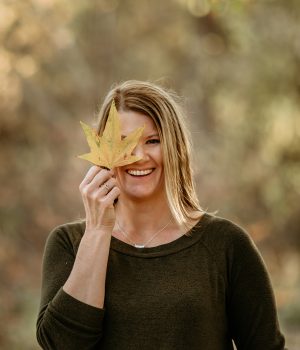I’ve written about trusting yourself before. I think the title of my article insinuated that I had learned to trust myself.
I thought I had.
Quite honestly, I’m struggling with trusting myself right now. I feel like I am being given all the signs to make a decision, to trust my gut. But I keep finding reasons not to.
But then again, my gut feel changes. At least I think it does.
Trusting yourself is a complicated notion.
But why is it so hard to trust ourselves? Why is it hard to hear that inner voice of wisdom and actually listen to it? What is it that makes us second-guess what our deepest knowing is telling us?
What is not trusting?
Not trusting means second-guessing, waffling, flip-flopping, changing course, deferring to others, being indecisive, self-sabotage, wanting something but acting in ways that make it completely impossible to attain.
It’s questioning your inner knowing, or even dismissing it.
Trust is a fine line. On one hand, trusting too much makes a person gullible. But not trusting at all makes one paranoid. Finding that middle ground that feels solid and effortless seems like it should be so easy. Especially with yourself – I mean, after all, we are supposed to know what’s best for us, aren’t we?
Trusting yourself in childhood
In contemplating this, I decided to start at the beginning, transporting myself back to childhood where the decisions were made by the grown-ups in my life.
As children, it is not our job to trust ourselves because we are still learning how the world works. It’s the reason that parents have to put those plastic plug thingies in electric sockets. Because at young ages, we can’t really be trusted to know what is, or isn’t, good for us.
Our parents and caregivers tell us no.
Obviously, that’s a good thing when we’re talking about electric sockets or talking to strangers, but think about when it comes to jumping in mud puddles or drawing in crayon on the wall.
We get the message that these things are bad (and some of them might be…ummm… less-than-desirable to the grown-ups in our lives) … that things that are really quite fun for us are unacceptable and they get us into trouble.
We’re trained at a very young age not to trust ourselves.
Trusting Yourself As You Get Older
We grow up. We get older.
We might raise our hand to participate in class, even though it’s scary and vulnerable, and spout off the wrong answer. We might get teased for being stupid. Or maybe we’re at the beach with friends and we get teased for being fat. We’ve put ourselves out there, only to be ridiculed or criticized for it.
Everyone has embarrassing moments, or times when they’ve been teased or made to feel stupid. This stuff all builds up, and pretty soon you are second-guessing yourself, looking for approval. You’re looking for the go-ahead from someone you trust that it’s ok.
Your inner critic is telling you that you can’t make good decisions on your own.
As you get older, your inner knowing tells you that you should trust yourself. After all, you’re a grown-ass adult. You berate yourself for not trusting yourself, but there’s that wounded little kid inside that becomes your critical voice.
Every time you try something new or step out of your comfort zone, it’s there to try and keep you safe.
It says things like Who do you think you are? What makes you think you can be successful? They’ll think you’re crazy. You’ll probably screw up.
Very often, we listen.
We remember all the times that we have failed. Those embarrassing moments come flooding into our brain and we feel ashamed. The wounded little kid is in there, just trying to keep us safe. She’s just trying to protect us from getting hurt again.
Our inner kid is also keeping us from trusting that we really do have an inner knowing that goes beyond all of that.
We’re afraid of making mistakes like we have in the past. We have belief systems that we’ve accumulated that tell us we can’t trust ourselves. We tell ourselves stories about why we can’t trust ourselves. A lot of times when we don’t trust ourselves, we don’t have a good idea of who we really are at our core.
How Do We Trust Ourselves Again?
All of these things have one effect – they trick us into thinking that we aren’t trustworthy. We get tricked into thinking we are smaller, less powerful, less intelligent and less capable than we really are.
So how on earth do we get to a place where we can trust ourselves?
I don’t know if I have a good answer right now, but I believe it all starts with being authentic. With knowing what is true for you.
What are your fears? What limiting beliefs do you have? What do you believe in? What are your values? What do you need to stay in integrity with yourself?
Beliefs and Values
Knowing what is true for you is an important piece in learning to trust yourself.
When I work with clients, we do a lot of work around values. I have them really dig into what is important in their lives, and they land on three to five of the most important values in their lives.
They sit with them in between sessions and then we revisit them to tease apart why they are important or why, after sitting with them, they really aren’t as important as they thought, and there might be something else that they value more.
Knowing what you believe in and what you value functions like a lantern that lights your path. When you really take on these values and own them, they become a beacon that helps you make decisions and learn to trust yourself with those decisions.
Fears and Limiting Beliefs
We all have them. Fears and limiting beliefs are what get in the way of trusting yourself.
Let me give an example:
Let’s say I need to make a decision to invest a significant amount of money in a program that will help me grow my business. My gut, or inner knowing, knows the value in it, but I have limiting beliefs and fears around money.
I believe that there is never enough money. I have a scarcity mindset.
I’m afraid that if I spend the money, I’ll need it for something else and that will put me in a tight spot.
The belief system that I assimilated as a child tells me that I shouldn’t need to pay someone when I can figure this all out on my own.
Those fears and limiting beliefs are getting in the way of my inner knowing, my intuition, my gut feel. Fear of making the wrong decision questions my my gut.
Fear has good intentions – it is trying to keep me safe. But before I’ve done the work of learning to listen to my inner knowing, the fear is louder than my intuition.
And that is what gets in the way of trusting yourself.
Learning to Trust Yourself
It’s a process, a journey that progresses over time. We’re always growing and evolving. Trust in ourselves ebbs and flows. But it starts with inner work.
I already mentioned work around values. If you want help with this, I offer free 20-30 minute virtual coffee chats (schedule HERE). I can help you get started.
It’s also helpful to take a look at the things you know for sure in life. What you strongly believe in. Write your beliefs down. Keep them close.
Fear is a tough one because can be a loud, loud voice.
Fear works on a trigger-routine-reward cycle. Something that you’re afraid of triggers a thought pattern – the voice of fear that tells you you’re not good enough, or something bad is going to happen. Fear is trying to protect you, but it can lead you astray quite easily.
Identifying your pattern when you are afraid is key. Then you can tease apart the thoughts you have and reframe them to be more useful.
Limiting beliefs are linked to fear and are quite powerful. These are belief structures that you acquire throughout your life. They become automatic and therefore, you accept them without question.
Many of these beliefs are acquired in childhood. Before the age of seven, we are not developmentally capable of deciding for ourselves what is true or not for us so we rely on our family, teachers, religious leaders and society in general to tell us what we believe.
When you’re old enough to decide for yourself what you believe, many of these things are imprinted in your brain, so you don’t really think to question them. But now is the perfect time. And I guarantee you, if you identify something that is holding you back, you can trace it back to where it came from.
You can question your limiting belief and create a new belief. And, guess what? You get to decide that!
I can help you identify your fear patterns and limiting beliefs too. You can schedule a free virtual coffee chat to get started.
So in summary, my answer for you, friend, is not quick and concise. There is no easy way to start trusting yourself. You must do the work of peeling back the layers of the onion, so to speak, and figure out what is keeping you from trusting yourself.
One thing I know for sure is that we all have an inner knowing that will guide us to do what is right for us in that moment. We might make mistakes, but that’s ok, and part of the journey. Sometimes, part of trusting yourself is knowing that mistakes are ok and they’ll lead you to something you needed and wouldn’t have otherwise been exposed to.
I think it feels good to know that.
Do you trust yourself fully? I would love to hear your thoughts and stories.


